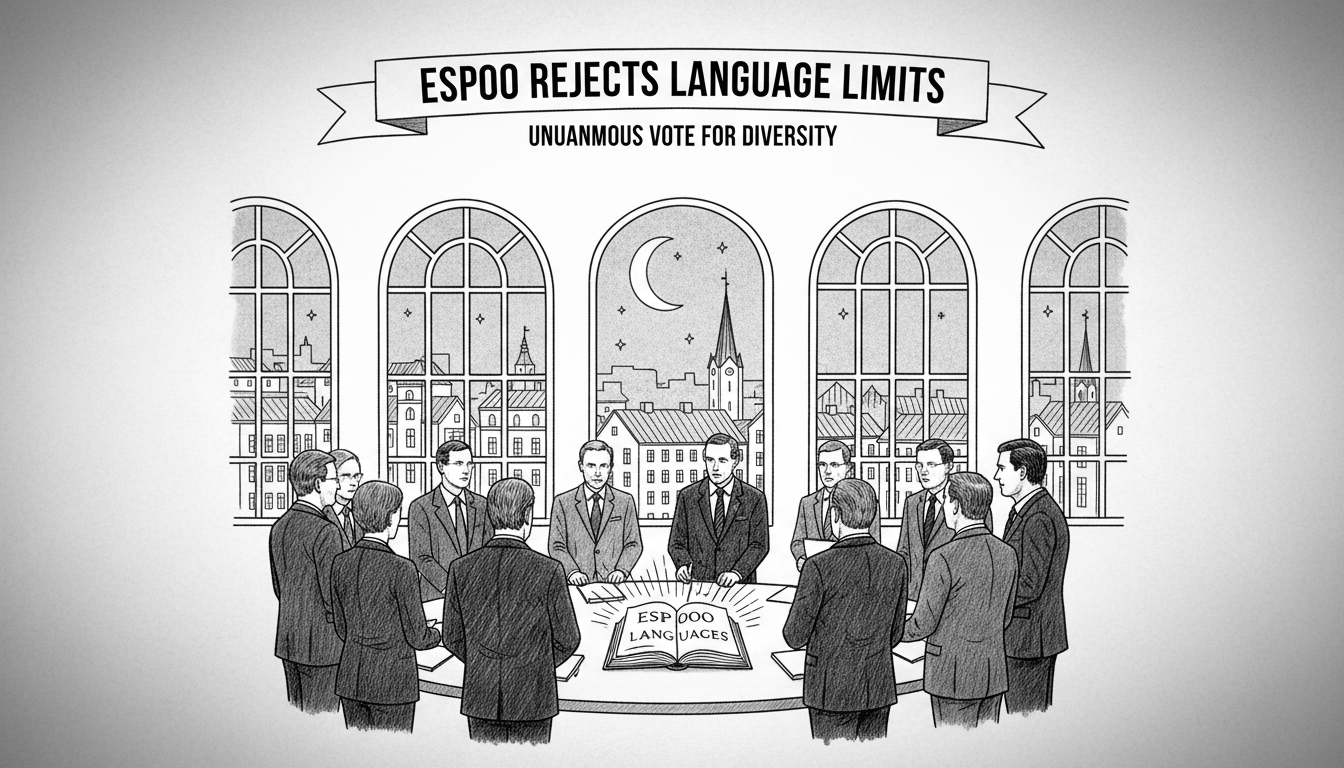Espoo's education board has unanimously rejected a controversial proposal that would have made English the only A1 language option in local schools. The plan sparked widespread concern among politicians and parents who argued it would reduce linguistic diversity in Finland's second-largest city.
The Growth and Learning Committee sent the proposal back for further review on Wednesday evening. Board members demanded more information about how limiting language choices would affect students' language skills, municipal finances, and Espoo's international reputation.
Committee Chair Mia Laiho stated they weren't prepared to accept the proposal. She emphasized that instead of reducing language options, officials should explore how to make more languages available to students. The committee discussed the matter for over two hours before reaching their unanimous decision.
Many politicians questioned the logic behind reducing language offerings. Board member Mikko Lievonen noted that Espoo is growing into an increasingly international city. He argued the municipality should invest in education and maintain diverse language options rather than narrowing students' choices.
The debate reflects broader concerns about language education trends across Finland. Just hours before Espoo's meeting, Parliament's Education Committee discussed nationwide reductions in language offerings. The timing highlighted how Espoo's proposal fit into a concerning national pattern.
Currently, German and French A1 options are only available in Tapiola area schools. Several board members suggested expanding these offerings to other districts rather than eliminating them. Board member Elina Kokko emphasized that English remains important but maintaining diverse language resources is crucial for Espoo's multilingual community.
Parents have expressed significant concern about the proposal. Board members reported receiving numerous contacts from worried families. Many questioned why a city positioning itself as Finland's capital for children and youth would consider reducing educational opportunities.
The proposal now returns for additional preparation. Officials must examine whether expanding language options is feasible. They'll also need to address how to encourage student commitment to their chosen language and maintain smooth educational pathways.
This decision comes as Finnish municipalities face pressure to streamline educational services while maintaining quality. Espoo's rejection of language reduction suggests recognition that international cities benefit from linguistic diversity rather than standardization.
The outcome demonstrates how local politics can influence educational policy. Politicians across party lines united to protect language diversity, showing consensus on maintaining comprehensive educational offerings despite administrative pressures.

